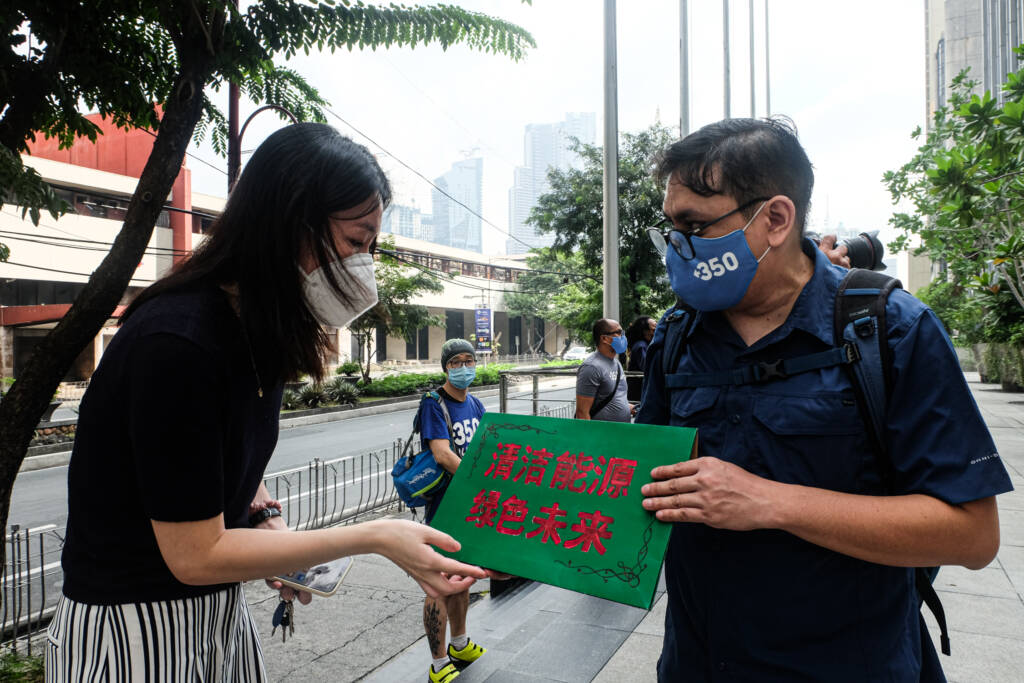Chuck Baclagon
At a virtual summit hosted by the UN and Brazil, Chinese President Xi Jinping reaffirmed his country’s commitment to climate action. In itself, that might not sound extraordinary. But in a world still reeling from the damage done by the United States’ retreat from the Paris Agreement under the Trump administration, this pronouncement carries weight.
When the U.S. stepped back from the global climate effort—first under Trump’s initial presidency and again with his return—it left a vacuum that’s been hard to ignore. These repeated withdrawals from the Paris Agreement signaled a retreat from global responsibility just as the world needed decisive, collective action. In the years since, we’ve seen continued delay and denial from some of the world’s biggest emitters, even as floods, fires, and heatwaves intensified with frightening regularity.
Given China’s scale and influence, its decisions on energy, industry, and finance have consequences that ripple far beyond its borders—especially across Asia, where many countries are highly vulnerable to climate impacts and heavily reliant on fossil fuels. Its climate actions are not just domestic matters; they are global necessities. The world is watching not for symbolic gestures, but for real, measurable shifts that match the urgency of the crisis.
But let’s be clear: this moment isn’t just about who’s in front of a microphone. It’s about what comes next—and whether words become real change.
In October 2021, just days before COP26 in Glasgow, I joined fellow climate advocates from 350 Pilipinas in staging a symbolic dragon and lion dance outside the Chinese Embassy in Manila. I remember the steady rhythm of the drums, the intricate movements of the dancers, and the sharp contrast between the festive tradition and the urgency of our message. We chose the performance—typically a symbol of renewal and celebration—to call for bold, Asian-led climate action. It followed President Xi Jinping’s announcement at the UN General Assembly that China would stop funding coal-fired power plants abroad—a move widely recognized as a potential turning point. Our action underscored how this could be more than a diplomatic gesture; it could be a spark for a just and equitable energy transition across Asia, a region home to over half the world’s population and deeply vulnerable to the climate crisis.
The action was part of 350 Pilipinas’ ongoing work to engage China as both a major emitter and a potential climate leader. They have supported campaigns like Go Clean ICBC, which challenges China’s biggest bank to divest from fossil fuels and fully embrace renewables. A report from the coalition revealed ICBC to be the world’s largest funder of fossil fuels—but also the largest backer of renewable energy, ahead of U.S. banks. We believe this dual role gives China a unique responsibility and opportunity to lead the global shift to clean energy—if its commitments are matched by bold, community-driven implementation.

A representative from the Chinese Embassy in Manila accepts 350 Pilipinas’ letter urging China to back its Glasgow Climate Summit pledges with bold, decisive action—calling for an end to fossil fuel finance and a just transition for Asia’s future. Photo: AC Dimatatac
We’ve also worked alongside the Go Clean ICBC coalition, pressing the Industrial and Commercial Bank of China (ICBC)—the world’s largest bank—to stop funding fossil fuels and fully commit to a renewable energy transition. A 2022 report from the coalition revealed a telling truth: while ICBC remains the largest funder of fossil fuels among Chinese banks, it is also the single biggest investor in renewable energy globally—far surpassing U.S. banks. This duality underscores China’s potential to lead a global energy revolution, if only it fully aligns its financial flows with its climate rhetoric.
China’s upcoming update to its Nationally Determined Contributions (NDCs), ahead of COP30 in Belem, Brazil, will be a critical litmus test. Will these targets align with science—and with what frontline communities need to survive? Will they move the dial not just on emissions, but on how countries develop in a world shaped by climate crisis?
Because this moment demands more than token gestures. Climate action must be about changing the path we’re on. It must mean redesigning our economies so that they thrive within planetary boundaries. It must mean ensuring climate action walks hand-in-hand with reducing poverty, improving health, and safeguarding education. And most importantly, it must be rooted in community leadership—because real solutions grow from the ground up.
The responsibility doesn’t lie with China alone. Historical polluters—those who built their economies on coal and oil—have an even bigger burden to carry. They must provide financing, technology, and support to countries that did the least to cause this crisis but bear the brunt of it. That’s not charity—it’s justice.
So yes, China’s words matter. But what happens next will matter more. In this collective race against time, the world doesn’t need more announcements. It needs bold, accountable leadership at the scale the climate crisis demands. We’re watching—and organizing—for exactly that.
View this post on Instagram




